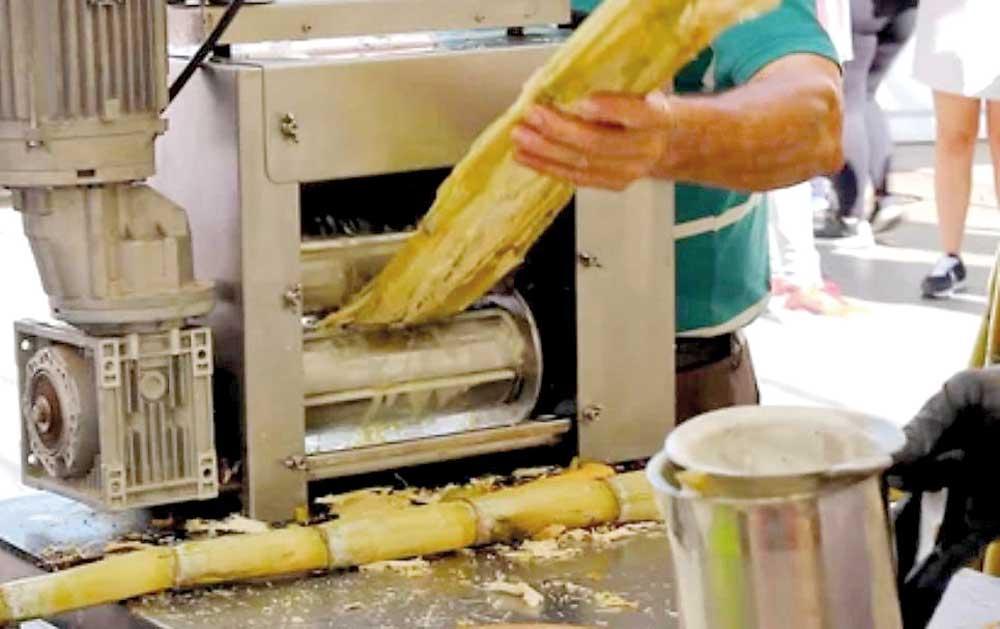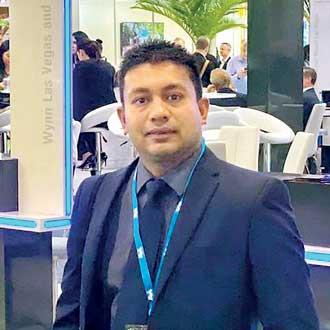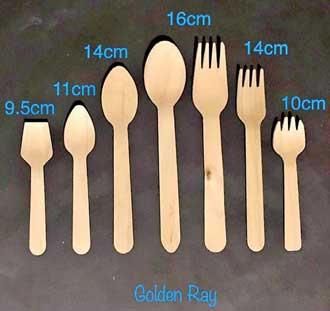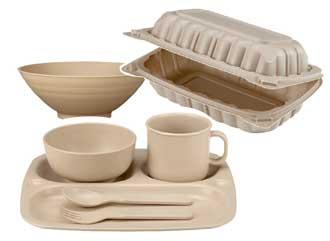
We were inspired to start sourcing sustainable products out of a deep commitment to protecting our planet for future generations.
 Championing sustainability, Ishan Karunaratne the Managing Director of Sinhalite Holdings is an advocate on a mission to change everyday habits, one plastic-free swap at a time. Like many, Ishan once navigated life as a mindless consumer, accepting whatever came his way without questioning its impact. His journey is especially intriguing because, despite his background as a hotelier with over two decades of experience in the hospitality industry in Sri Lanka and the United Kingdom, including roles as a group consultant for two hotel chains, everything changed after a fateful epiphany—a moment of truth that redirected his path.
Championing sustainability, Ishan Karunaratne the Managing Director of Sinhalite Holdings is an advocate on a mission to change everyday habits, one plastic-free swap at a time. Like many, Ishan once navigated life as a mindless consumer, accepting whatever came his way without questioning its impact. His journey is especially intriguing because, despite his background as a hotelier with over two decades of experience in the hospitality industry in Sri Lanka and the United Kingdom, including roles as a group consultant for two hotel chains, everything changed after a fateful epiphany—a moment of truth that redirected his path.
 Now, Ishan leads Sinhalelite Holdings (PVT) LTD, a company for those who believe in the power of conscious living and strive to make a meaningful difference in the world. Sinhalelite is more than just a brand; it’s a movement driven by purpose, fuelled by passion, and dedicated to elevating sustainability to a new level.
Now, Ishan leads Sinhalelite Holdings (PVT) LTD, a company for those who believe in the power of conscious living and strive to make a meaningful difference in the world. Sinhalelite is more than just a brand; it’s a movement driven by purpose, fuelled by passion, and dedicated to elevating sustainability to a new level.
Q: What inspired you to start making sustainable products from sugarcane waste?
We were inspired to start sourcing sustainable products out of a deep commitment to protecting our planet for future generations. As we saw the growing impact of climate change and resource depletion, we felt it was our responsibility to look for compostable products, that not only meet the needs of our customers but also contribute positively to the environment. By embracing sustainability, we’re not just creating products-we’re helping to shape a better, more sustainable future.
We recognize that sustainable practices can ensure long-term viability by reducing waste, conserving resources, and fostering positive relationships with communities and consumers.
Q: Do you use any other waste products apart from sugarcane?
In our commitment to sustainability, we continuously seek innovative manufactures that seek to reduce waste by incorporating byproducts and recycled materials into their production process. For instance, our sugarcane straws are from sugarcane fibre, Coffee straws are from ground coffee and our PLA U-shaped straws are made of fully compostable material, 100% food-grade granules, no odour, we also use plant-based biopolymer, 100% compostable used for cling film. Bamboo is used for a range of products, including straws, and food containers. By turning what was once waste into valuable resources, we’re able to minimize our environmental impact and contribute to a circular economy.
Q:Can you share the journey that led to the creation of your business?
With a clear mission in mind, we set out to find a product that was not only compostable but also practical, durable, and affordable. We wanted to ensure that making the sustainable choice was easy and accessible for everyone. After countless hours of research, and refining our suppliers, we launched our first line of compostable products, starting from compostable cling film range, bags, cutlery and cups with lids.
Our journey is ongoing, and we remain dedicated to our mission of promoting sustainability through innovative, compostable products. As we look to the future, we plan to scale our operations, explore new markets, and continue innovating to offer even more sustainable solutions. Our goal is to make compostable products the norm, helping to create a more sustainable world for future generations.
Q: How did you identify sugarcane waste as a viable material for your products?
We began researching renewable resources that could serve as alternatives to conventional plastics and other non-sustainable materials. During this exploration, we discovered that sugarcane is a highly abundant and renewable resource. Sugarcane is widely grown in many regions of the world, and the production process generates a significant amount of waste in the form of bagasse—the fibrous residue left after the extraction of juice from sugarcane stalks. We also found coffee, mixing coffee grounds with other biodegradable materials such as natural resins, plant-based fibres, and starches. The mixture is then moulded into the shape of a straw. Coffee grounds straws are considered one of the best eco-friendly alternatives.
Q: Can you describe the process of turning sugarcane waste into straws?
Turning sugarcane waste into straws involves several key steps, transforming the fibrous residue left after sugar extraction—known as bagasse—into a viable, eco-friendly product. Here’s an overview of the process. The bagasse is collected and dried to reduce its moisture content. This step is crucial as it makes the material easier to handle and process further. The bagasse pulp is placed into moulds that are specifically designed to shape the material into straws.
Q: What other products do you create from waste?
Creating products from waste is a growing area of innovation aimed at reducing landfill, conserving resources, and promoting sustainability.We focus on sourcing products from a variety of manufacturers that repurpose waste materials. Here are some of the key products range from different types of waste.
Bagasse-Based Plates and Bowls: Made from sugarcane waste (bagasse), these items are sturdy, heat-resistant, and fully compostable.
Coffee-Based Tableware: Coffee grounds into biodegradable items like straws.
Compostable Pallet Film: Made from plant-based biopolymer, 100% compostable.
Q: What are the main benefits of using sugarcane waste compared to traditional materials?
Using sugarcane waste, specifically bagasse, as a material offers several significant benefits compared to traditional materials.
Renewable Resource: Sugarcane is a renewable crop, harvested annually, and its byproduct, bagasse, is a sustainable resource that is continually replenished. This contrasts with traditional materials like plastic, which are derived from finite fossil fuels.
Reduced Waste: Utilizing bagasse helps reduce agricultural waste by repurposing a byproduct that would otherwise be discarded or burned. This decreases the overall environmental footprint of sugarcane processing.
Compostable: Products made from bagasse are fully compostable and break down naturally in composting environments, leaving no harmful residue.
Q:What challenges did you face in developing your production process, and how did you overcome them?
Ensuring a consistent supply of high-quality bagasse was one of the first challenges for our suppliers. Since bagasse is a byproduct, its availability can fluctuate depending on the sugarcane harvest season and processing efficiency.
We established strong relationships with our suppliers to ensure product availability for customer demands.
Q: How do you ensure the quality and durability of your products?
Ensuring the quality and durability of our products, particularly those made from alternative materials like sugarcane waste, involves several steps throughout the production process. We ensure the suppliers we work with have the necessary approvals from government authorities and that all goods carry a certificate of authenticity.
Q: Do you collaborate with any organizations or communities in sourcing the sugarcane waste?
We aim to build direct relationships with sugarcane mills and farming cooperatives plus manufactureres to source our products more sustainably and ensure a consistent supply. These partnerships will also allow us to support local economies by providing an additional revenue stream for these producers.
Q: What are your future plans for expanding your product line or market reach?
Our future plans involve expanding our product line with new compostable offerings, entering new markets globally, investing in research and finding new suppliers, and building stronger relationships with communities and industry partners. By staying committed to innovation and sustainability, we aim to lead the way in providing eco-friendly alternatives and making a significant impact on reducing waste and promoting a circular economy.
 Q:Can you quantify the environmental impact of your products compared to conventional alternatives?
Q:Can you quantify the environmental impact of your products compared to conventional alternatives?
A. By conducting comprehensive life cycle assessments and comparing key environmental impact indicators, we can quantify the environmental benefits of our products compared to conventional alternatives. This analysis provides valuable insights for stakeholders and helps guide our efforts to minimize environmental impact and promote sustainability.
Unlike conventional plastic products, which can take hundreds of years to decompose, our compostable product range biodegrade within a few months under composting conditions. This rapid decomposition reduces the long-term environmental burden.
The environmental impact of our compostable products, when compared to conventional plastic alternatives, is significantly lower across multiple dimensions—carbon footprint, waste reduction, resource efficiency, and overall environmental safety. These benefits align with our mission to provide sustainable solutions that contribute to a healthier planet and a more circular economy. As we continue to innovate and improve our processes, we aim to further enhance these positive impacts.
Q: Do you collaborate with any organizations or communities in sourcing the sugarcane waste?
A. We aim to build direct relationships with sugarcane mills and farming cooperatives plus manufactures to source our products are more sustainably and ensure a consistent supply. These partnerships will also allow us to support local economies by providing an additional revenue stream for these producers.
While we currently do not collaborate with organizations or communities in sourcing our products, we recognize the importance of such partnerships and are committed to developing them in the near future. These collaborations will play a crucial role in enhancing our sustainability efforts and supporting local economies.
 Q:. What feedback have you received from your main customers?
Q:. What feedback have you received from your main customers?A. Customers have praised the durability and functionality of our compostable products, particularly noting that they perform as well as, if not better than, conventional alternatives. For example, our compostable commercial Cling film, compostable bags and compostable straws have been lauded for maintaining their integrity without becoming soggy, even in long-duration use.
Overall, the feedback from our main customers has been very positive, particularly regarding the environmental impact, quality, and customer service. The constructive feedback we’ve received is invaluable, as it helps us continually improve our products and services to better meet customer needs and expectations. We’re committed to addressing these areas and continuing to provide high-quality, sustainable solutions.
Q:How do you differentiate your products from other eco-friendly alternatives on the market?
A. We differentiate our products from other eco-friendly alternatives through our innovative use of compostableproducts, superior performance, truly biodegradable, and strong commitment to sustainability, transparency, and ethical practices. By focusing on these key areas, we offer products that not only meet the needs of environmentally conscious consumers but also provide tangible benefits that set us apart in the market.
Q: How do you plan to scale your production to meet increasing demand?
A. Scaling production to meet increasing demand involves a multifaceted approach that includes enhancing efficiency, expanding capacity, investing in R&D, building strong supply chain partnerships, and maintaining high quality standards. By strategically addressing these areas and focusing on sustainability, we are well-positioned to grow our production capabilities and continue meeting the needs of our customers.
We will actively seek and incorporate feedback from customers to improve our products and production processes. This will help us align our offerings with market needs and expectations.
Q:. What advice would you give to other entrepreneurs looking to start a sustainable business?
 A. Starting a sustainable business requires a clear vision, innovative thinking, and a commitment to integrating sustainability into every aspect of your operations. By understanding your market, prioritizing sustainability, building a strong brand, and fostering a supportive culture, you can create a successful business that makes a positive impact on the environment and society.
A. Starting a sustainable business requires a clear vision, innovative thinking, and a commitment to integrating sustainability into every aspect of your operations. By understanding your market, prioritizing sustainability, building a strong brand, and fostering a supportive culture, you can create a successful business that makes a positive impact on the environment and society.
Cultivate a culture of innovation and collaboration within the team. Encourage creative thinking and problem-solving to drive sustainability efforts forward.

 Championing sustainability, Ishan Karunaratne the Managing Director of Sinhalite Holdings is an advocate on a mission to change everyday habits, one plastic-free swap at a time. Like many, Ishan once navigated life as a mindless consumer, accepting whatever came his way without questioning its impact. His journey is especially intriguing because, despite his background as a hotelier with over two decades of experience in the hospitality industry in Sri Lanka and the United Kingdom, including roles as a group consultant for two hotel chains, everything changed after a fateful epiphany—a moment of truth that redirected his path.
Championing sustainability, Ishan Karunaratne the Managing Director of Sinhalite Holdings is an advocate on a mission to change everyday habits, one plastic-free swap at a time. Like many, Ishan once navigated life as a mindless consumer, accepting whatever came his way without questioning its impact. His journey is especially intriguing because, despite his background as a hotelier with over two decades of experience in the hospitality industry in Sri Lanka and the United Kingdom, including roles as a group consultant for two hotel chains, everything changed after a fateful epiphany—a moment of truth that redirected his path. Now, Ishan leads Sinhalelite Holdings (PVT) LTD, a company for those who believe in the power of conscious living and strive to make a meaningful difference in the world. Sinhalelite is more than just a brand; it’s a movement driven by purpose, fuelled by passion, and dedicated to elevating sustainability to a new level.
Now, Ishan leads Sinhalelite Holdings (PVT) LTD, a company for those who believe in the power of conscious living and strive to make a meaningful difference in the world. Sinhalelite is more than just a brand; it’s a movement driven by purpose, fuelled by passion, and dedicated to elevating sustainability to a new level. Q:Can you quantify the environmental impact of your products compared to conventional alternatives?
Q:Can you quantify the environmental impact of your products compared to conventional alternatives? Q:. What feedback have you received from your main customers?
Q:. What feedback have you received from your main customers? A. Starting a sustainable business requires a clear vision, innovative thinking, and a commitment to integrating sustainability into every aspect of your operations. By understanding your market, prioritizing sustainability, building a strong brand, and fostering a supportive culture, you can create a successful business that makes a positive impact on the environment and society.
A. Starting a sustainable business requires a clear vision, innovative thinking, and a commitment to integrating sustainability into every aspect of your operations. By understanding your market, prioritizing sustainability, building a strong brand, and fostering a supportive culture, you can create a successful business that makes a positive impact on the environment and society.